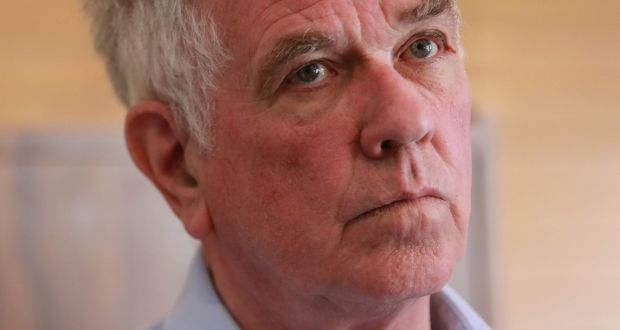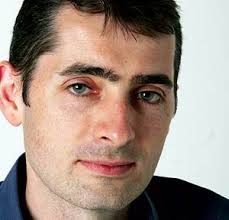
Peter McVerry SJ – for Joe Humphreys ‘probably the most credible social commentator of the Irish Left’
With the political left in apparently terminal disarray in these islands – and the liberal optimism of the 1960s also in dire straits, what exactly went wrong with western political Utopianism?
And with religious faith also on the defensive against a secularising crusade to confine it to ‘the private sphere’, how are people of faith to ‘fight back’, without confirming the left-wing prejudice that all religion is ‘regressive’ – inclined towards violence, anti-libertarian and supportive of social inequality?
With despondency and pessimism rampant on all points of the left-liberal compass, and idealism looking almost like pure naivety, is it time for the democratic left and ‘people of faith’ to open a new dialogue, in search of common ground?
That question was raised separately in Belfast and Dublin in recent weeks.
On July 9th a group of Green progressives launched a debate in Queen’s, centred on the possibility of a new alliance between socially energised faith and Green / left activism: “Green Values, Religion and Secularism”
Nuala Ahern, Erica Meijers and Jon Barry spoke eloquently to that cause, to an audience of interested people of faith, representing both reformed and Catholic traditions. Nuala and Erica have recently published a book on the same topic, based on detailed interviews with sixteen green activists from a wide spectrum of national and religious backgrounds. This book can be downloaded as a .pdf file from the website Green Foundation Ireland.
Then, in the Irish Times of July 18th, Joe Humphreys outlined three steps he thinks the political Left needs to take to rise again:
- Start talking about values – instead of evidence-based policy;
- Quit demonising free enterprise;
- Build bridges with people of faith.
Developing that last point Humphreys pointed out that: “In the past century, some of the most progressive causes – promoting civil rights, international solidarity, environmental responsibility and nuclear disarmament – have been led, or heavily influenced, by people of a religious background. In the US, Christian activists like Martin Luther King and the Berrigan brothers have had a profound influence on the American conscience. In Ireland today, probably the most credible social commentator of the left is Fr Peter McVerry.”
Click here for the full text of Joe Humphrey’s article in the Irish Times.
To this reformist Irish Catholic these are hugely hopeful signs. A focus on values – especially with regard to the family and the Environment – has been a keynote of the present papacy, while a generally exhausted Irish clergy needs desperately to see signs of a revitalised and socially activist Catholicism among lay people – especially the young.
Is there a tide here for ACI to catch – to sponsor a vital dialogue between all who want to build a compassionate, caring, sustainable and egalitarian society together?
Sean O’Conaill





I won’t hold my breath waiting – the political left in Ireland is vehemently opposed to religion as exemplified by Ruairi Quinn’s utter determination, simply on ideological grounds, to drive religion out of schools.
I have a historian’s notion of ‘imminence’, Martin, looking somewhat beyond Ruairi Quinn to determine the future of the Irish political ‘left’.
I am not sure either that Catholicism would not benefit from the shock of a state ban in Irish schools – as something truly dramatic is needed to wake us from the torpor of the present. Our virtually total reliance on our schools to ‘hand on the faith’ is in dire need of both questioning and discussion. I recall a recent letter to the Irish Catholic from a man with experience of the ban on religion in US state schools – and the resulting far greater participation of parishes and parents in that task – with knock-on effects on the vibrancy of parish liturgies. We need to be discussing all of this in the knowledge that absolutely no firm research data exists on the effectiveness of our school-centred system for forming a durable faith.
That is not to say that schools fail utterly in that task either – but just circling the wagons in their defence is surely insufficient.
A promising idea! In our broken, divided world surely all who care about the poor and the marginalized should unite to help ease their suffering and fight against injustice.
This kind of alliance is producing exciting results in the global fossil fuel divestment movement. Churches and faith groups are combining with left-wing university students and together leading the charge in this rapidly growing campaign. They are united in their concern for the poor, who are most affected by climate change, and by the fact that 80% of fossil fuel reserves must remain unused if we are to prevent catastrophic, irreversible climate change which would claim millions of lives.
In Ireland too, the fruitful potential of this kind of ‘Left-Green-Faith’ alliance is starting to show; left wing students are launching fossil fuel divestment campaigns in universities throughout the island. They are liaising with Christians NGOs and other faith based groups such as ‘Laudato Si’ parish groups. Many of the later are largely composed of middle-aged/elderly people which has led to some stimulating ‘inter-generational’ collaborations. Pope Francis has said that ’there is no future without the encounter between generations’. His words sound rather prophetic when we consider that these novel ‘inter-generational partnerships’ are fighting for the very future of a livable planet Earth.
Trocaire have just produced a nice documentary on the topic, from an Irish perspective. It is called ‘The Burning Question’ and can be viewed here. https://www.trocaire.org/getinvolved/climate-justice.
As someone who attended the first UN conference on Climate change in Berlin in 1995, I have been very heartened at the emergence of the climate justice campaign, and by the signs of shared aims between green, left and faith groups – and I do hope that the kind of alliance Joe Humphreys talks about can emerge.
In the publication I co-edited (Green Values, Religion and Secularism), several of the conversations remarked on the need for faith communities to direct their energies toward solving the great crises of our times, and called on them to become less inward-looking and focussed on older ideas of morality. Laudato Si is a great example of this and I hope it will be acted on in Ireland in answer to the call to action of Pope Francis.
Thanks, Nuala. Many of our Catholic communities worry about the future, given declining congregations with too few young people. That inward focus is very much part of our problem: we don’t see what relevance our faith has to all of the crises that so concern others, especially the young. Until that changes we will continue to founder.
Well said, Nuala
Just to clarify my earlier comments which in retrospect appear somewhat brusque, I did not mean to include the environmental movement. On the contrary, Laudato Si is a great example of how our Church has to move away from what I regard largely navel gazing and start engaging with the real world on real issues. There is no doubt in my mind that in specific areas like the environment, we can and must find common cause with non-religious movements and groups.
What I was really getting at was what I see as an ongoing move by the *ideological* left to try to eradicate the influence of religion in general and Catholicism in particular from every aspect of public life in Ireland – education and health are the immediate targets but I think it goes far beyond that.
What really frustrates me, however, is not the people who are seeking that – they are entitled to their views and making them heard; what really bothers me is the near acquiescence of our Church. As the voices get ever shriller arguing that religion is not just irrelevant but harmful, who is fighting back, who is carrying out Christ’s mission of promoting the value of the Good News?
Our Catholic Faith has much to offer society but we are doing little or nothing to make society aware of that.
I am very taken with Timothy Radcliffe’s wonderful book “What Is the Point of Being a Christian?” in which he makes the argument that although we should not be Christians simply because it makes life better for us, at the same time, being Christian should visibly set us apart from other people in that they should see our Christian belief impacting upon our daily lives.
Father Peter McVerry does a wonderful job in the area of social justice; the tragedy is that a Catholic priest essentially doing what all of us should be doing is seen as the exception rather than the rule.
‘Who is fighting back?’ Asks Martin Harran – targeting those left wing viewpoints that unjustly pillory Catholicism as essentially regressive.
It’s a very good question, but the word ‘fighting’ evokes for me (b. 1943) an unfortunate residual association with a pre-Vatican II ‘church militant’ that was bent on preserving ‘Christendom’ – that church/state alliance which opposed all democratic aspiration in the wake of the French revolution, and held the political left to be Satanic.
I know well that Martin is not using the word ‘fight’ in that literal sense. He is calling instead for an intelligent response that engages directly and respectfully with those who can’t see that for Christians ‘the kingdom of God’ offers true freedom and equal respect for all, and that ‘Catholic education’ at its best is perfectly compatible with the principles of liberty, fraternity and equality.
The trouble is that the apparent intent of right-wing Catholicism to continue resisting separation of church and state (i.e. to maintain a controlling influence for their own church on public policy) not only reinforces the hostility of the left but embarrasses politically moderate Catholics into inactivity. We moderates struggle to articulate a ‘post-Christendom’ Christianity – i.e. a point-of-view that understands the need to build consensus by persuasion on the most troubling issues, and sees the positive value of neutral secular space.
That’s why we need to be looking together at the principles of Catholic Social Teaching, which now includes ‘Laudato Si’. Our first ‘fight’ must be to become persuasively articulate about the relevance of ‘kingdom’ values to the most basic human needs and crises. The last thing we need is a continuing unnecessary rivalry – a ‘struggle for power’.
I would agree that some of the greatest humanitarians and social activists have historically come from religious backgrounds and maybe it’s again time to engage with politics on the left for those Christians who want social justice. The Catholic Church itself has social justice documents that encourages that.
It appears that in the West the Religious Right has allied itself with conservatives to further their beliefs – it seems reasonable that people with religious views that encompass social justice should seek to further them by joining social democratic parties